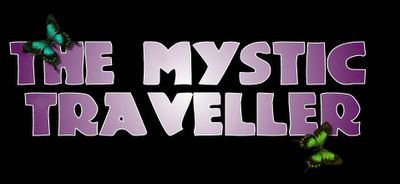The Importance Of A Patient Heart
A beautiful, touching short film from Greece, with a very important message.
A beautiful, touching short film from Greece, with a very important message.
by
Unknown
0
comments
![]()
Labels: Films, People, Thoughts On Our World
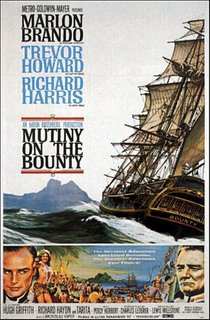 g the sort of hat that fishing hobbyists like. He looked battered by years of drinking and bad health.
g the sort of hat that fishing hobbyists like. He looked battered by years of drinking and bad health.
by
Unknown
4
comments
![]()
Labels: Famous Encounters, Films
 It appears that Hollywood believes we are ready to revisit the terrors of 9/11. There was always an inevitability that this would happen sooner or later, but so soon after is rather surprising. Perhaps, the suits in Tinseltown feel that they can provide a catharsis for those still emotionally reeling from the shock of that most tumultuous of days.
It appears that Hollywood believes we are ready to revisit the terrors of 9/11. There was always an inevitability that this would happen sooner or later, but so soon after is rather surprising. Perhaps, the suits in Tinseltown feel that they can provide a catharsis for those still emotionally reeling from the shock of that most tumultuous of days.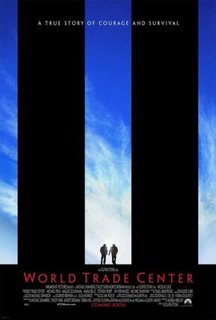
by
Unknown
4
comments
![]()
Labels: Films, Politics, Reviews, Thoughts On Our World
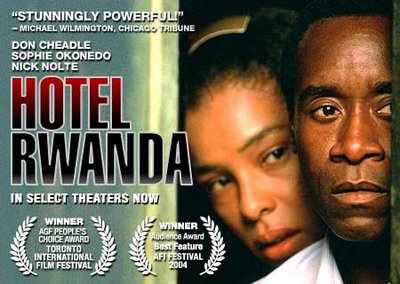 From April to July in 1994, human beings managed to once again tap into their base nature and bring about horrors that had not been seen since the barbaric atrocities of Pol Pot in Cambodia.
From April to July in 1994, human beings managed to once again tap into their base nature and bring about horrors that had not been seen since the barbaric atrocities of Pol Pot in Cambodia.
by
Unknown
7
comments
![]()
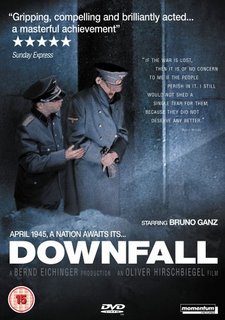 With the release of the German-made Downfall and the very Hollywood Kingdom Of Heaven, we are given an opportunity to compare differences of approach in the production of historical dramas.
With the release of the German-made Downfall and the very Hollywood Kingdom Of Heaven, we are given an opportunity to compare differences of approach in the production of historical dramas.
by
Unknown
1 comments
![]()
Labels: Films, Reviews, Thoughts On Our World
by
Unknown
0
comments
![]()
Labels: Bits and Pieces, Films
by
Unknown
0
comments
![]()
Labels: Films, Popular Culture, Reviews
 Throughout my teens, I was lucky enough to work on a variety of British television and film productions. As a result, I got to meet many accomplished actors and filmmakers. I never could have imagined that someday I would work at a studio in the Land Of The Rising Sun.
Throughout my teens, I was lucky enough to work on a variety of British television and film productions. As a result, I got to meet many accomplished actors and filmmakers. I never could have imagined that someday I would work at a studio in the Land Of The Rising Sun.
by
Unknown
0
comments
![]()
Labels: Famous Encounters, Films, Thoughts On Our World
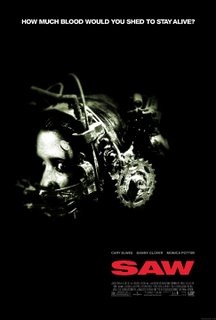 Having nothing better to do, I went to a movie theatre in Tokyo's Kabuki-cho, yesterday. I was bored and aimlessly walking about, when a large sign with Saw written on it, caught my eye. 'The Saw Is Family' mantra from The Texas Chainsaw Massacre sequel, suddenly jumped into my consciousness, reminding me of how much I love a good, gritty horror movie. I was in the mood.
Having nothing better to do, I went to a movie theatre in Tokyo's Kabuki-cho, yesterday. I was bored and aimlessly walking about, when a large sign with Saw written on it, caught my eye. 'The Saw Is Family' mantra from The Texas Chainsaw Massacre sequel, suddenly jumped into my consciousness, reminding me of how much I love a good, gritty horror movie. I was in the mood.
by
Unknown
0
comments
![]()
by
Unknown
0
comments
![]()
Labels: Films
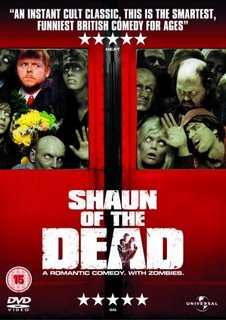 For as long as I can remember, I have adored zombies. If you asked me why, it would be difficult to give any kind of logical explanation. There was always something fascinating in the apocalyptic vision of a world overrun by walking corpses, who would do anything to have a nibble at your flesh.
For as long as I can remember, I have adored zombies. If you asked me why, it would be difficult to give any kind of logical explanation. There was always something fascinating in the apocalyptic vision of a world overrun by walking corpses, who would do anything to have a nibble at your flesh.
by
Unknown
0
comments
![]()
Labels: Films, Popular Culture, Reviews
by
Unknown
0
comments
![]()
Labels: Films, Popular Culture, Reviews
If the Worst Actress award must be handed out, then it should be for Sharon Stone, who plays the bland villain. Halle Berry certainly camps it up the best she can with the flaccid script, and there are many embarrassing scenes that will no doubt come back to haunt her, but she most definitely is NOT as bad as Elizabeth Berkley!
Like so many movies today, the CGI was the biggest let down. It just could not provide the realism needed, and once again, it was a distraction rather than an enhancer to the film.
Catwoman is not a great movie, but it is mildly entertaining. It is certainly not the disaster that King Arthur is, and has more chance to become at least a camp cult classic, if nothing else.
-----------------------------------------------------------
King Arthur is a film that defies all that should be included in an ideal summer blockbuster: entertainment, excitement, star power and impressive set pieces. What Jerry Bruckheimer succeeds in giving us, is a summer movie so horribly dull and boring, that the producer should be given a special award for such an incredible achievement.
The movie is set in the Dark Ages, and it became rapidly apparent that the director, Antoine Fuqua, had misunderstood why this period in history was named such. Instead of the Dark Ages being a period of little social or cultural development, he seems to have interpreted it literally, because the movie is filmed entirely in dark, pallid, grainy tones of grays and blues.
Matching masterfully the dullness of this enterprise's vision, Clive Owen gives a career best in what can simply be called one of the most uninspired, uncharismatic and stilted lead performances to ever grace the cinema screen. The durge of his voice is often inaudible and simply lacking in anything that could be called emotional or inflective. The contrast with Ioan Gruffudd's overly Shakespearian intoning Lancelot is unintentionally hilarious in scenes they share together.
The rest of Arthur's knights are basically an assembled collection of fictional stereotypes. It would be easy to take all these characters and throw them into a Muskateers' movie. Ray Winston, who I have worked with twice, on Robin Of Sherwood and Casualty, throws in an effort well below his talents, performing in the standard loveable rogue role.
The battle sequences are confused and messy, failing to achieve any of the impact of those found in the Lord Of The Rings movies, Braveheart, or even Troy.
If the legend of King Arthur had been as uninspired as this effort, the myth would have long been vanquished from memory. It is such a shame that the filmmakers decided to ignore the source material and club together their own story. The names of the characters alone, does not an Arthurian adventure make.
by
Unknown
0
comments
![]()
Labels: Films, Popular Culture, Reviews
by
Unknown
0
comments
![]()
Labels: Famous Encounters, Films, People
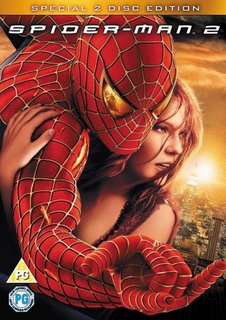 Perhaps its the Spandex, but superheroes have, more often than not, failed to translate to the big screen. The tight fabric that looked so cool drawn in ink, must be an absolute nightmare to transfer into reality. The easy option has been to shift from Spandex to either leather or PVC body armour, as was the case in the Batman movies. Sure the Dark Knight looked cool at times, but he was never "the" Batman of the comic books.
Perhaps its the Spandex, but superheroes have, more often than not, failed to translate to the big screen. The tight fabric that looked so cool drawn in ink, must be an absolute nightmare to transfer into reality. The easy option has been to shift from Spandex to either leather or PVC body armour, as was the case in the Batman movies. Sure the Dark Knight looked cool at times, but he was never "the" Batman of the comic books.
by
Unknown
0
comments
![]()
Labels: Films, Popular Culture, Reviews


